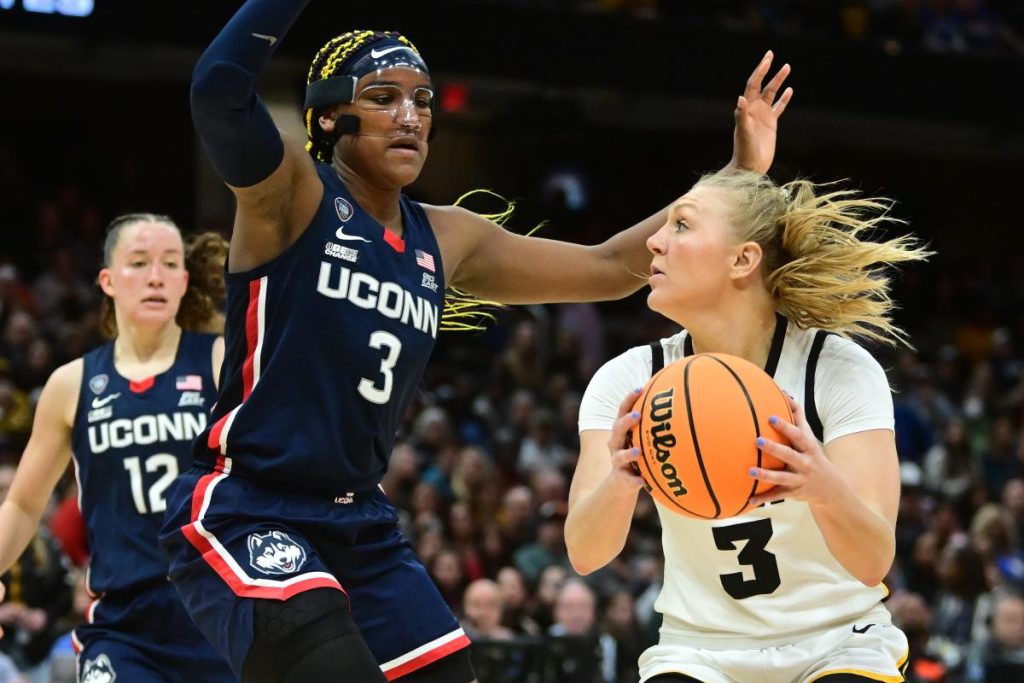The women’s NCAA Tournament faced controversy as Iowa beat UConn in the second national semifinal, but the buzz was on a foul call that occurred with less than four seconds remaining. UConn coach Geno Auriemma expressed extreme frustration at the call, and ESPN analysts also disagreed with it. The call was debated during post-game news conferences and in the locker rooms, with Aaliyah Edwards claiming the play was clean and Paige Bueckers emphasizing that players ultimately decide the game.
Geno Auriemma’s frustration was captured in a viral GIF, highlighting the contentious nature of the foul call that occurred at the end of the Iowa-UConn game. The call, which resulted in an offensive foul on Aaliyah Edwards, drew criticism from commentators and raised questions about the impact of officiating on the outcome of games. Players, coaches, and analysts expressed differing opinions on the controversial call, with some feeling it detracted from the players’ ability to make plays and decide the game on their own merits.
The Iowa-UConn game became mired in controversy due to the contentious foul call that occurred in the final moments of the game. While some defended the officials’ decision, others believed it was a missed opportunity for the players to determine the outcome through their skills and performance on the court. The episode added to the scrutiny of officiating in the women’s NCAA Tournament, which had previously come under the spotlight for other questionable calls, such as a player being sidelined to remove a nose ring and an official being replaced at halftime due to a conflict of interest.
The post-game discussions highlighted the divisive nature of the controversial foul call in the Iowa-UConn matchup, with players and coaches offering varying perspectives on the impact of officiating on the game’s outcome. Despite the outcry over the call, players like Paige Bueckers emphasized the role of individual performance in determining the game’s result, suggesting that one play does not define the overall outcome. In the aftermath of the game, questions were raised regarding the transparency and accountability of officiating in women’s college basketball tournaments, prompting calls for greater scrutiny and oversight in future competitions.
The controversy surrounding the foul call at the end of the Iowa-UConn game showcased the challenges and complexities of officiating in high-stakes college basketball tournaments. As players and coaches grappled with differing opinions on the call’s fairness, the incident underscored the need for clarity and consistency in the enforcement of rules and regulations on the court. Moving forward, stakeholders in women’s college basketball will likely continue to advocate for improved officiating standards to ensure fair and equitable competition for all teams and players involved in the NCAA Tournament.


